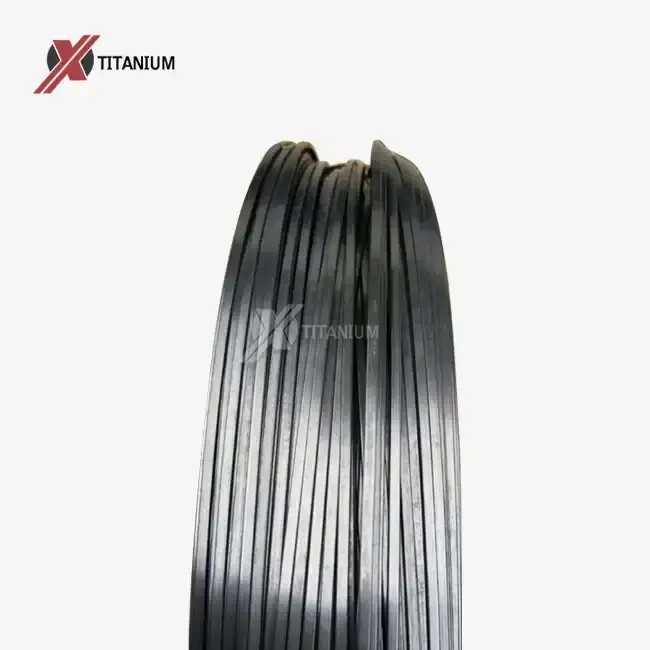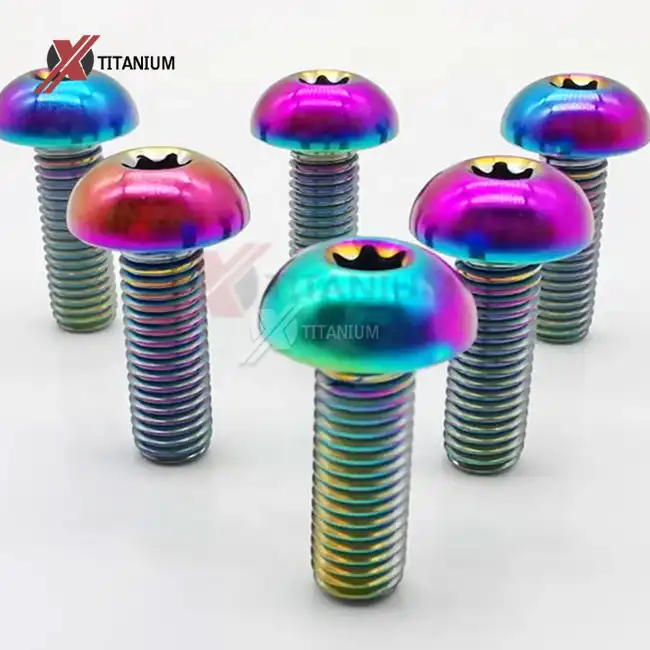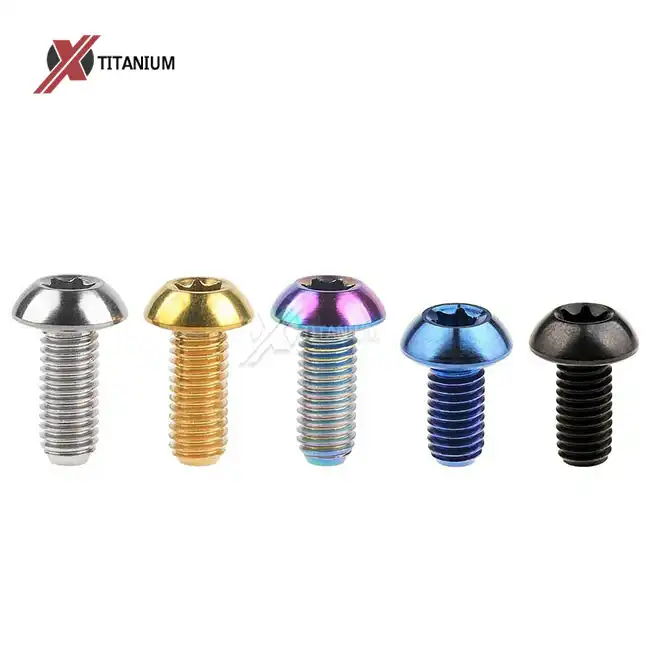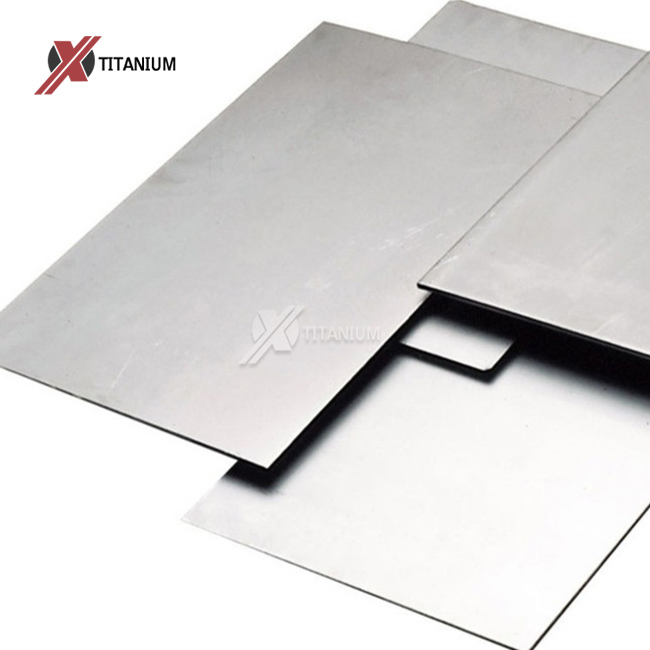The Unique Properties of Titanium Flat Wire in Medical Applications
Biocompatibility and Corrosion Resistance
Titanium flat wire's biocompatibility is a paramount feature that makes it indispensable in medical device manufacturing. The human body readily accepts titanium, minimizing the risk of adverse reactions or rejection. This characteristic is crucial for implantable devices that need to coexist harmoniously with living tissues for extended periods.
Moreover, the exceptional corrosion resistance of titanium flat wire adds another layer of safety and durability to medical devices. In the harsh biochemical environment of the human body, where fluids and tissues can be corrosive, titanium remains stable and intact. This resistance to degradation ensures the longevity of medical implants and reduces the need for frequent replacements, ultimately improving patient outcomes and quality of life.
Strength-to-Weight Ratio and Flexibility
The impressive strength-to-weight ratio of titanium flat wire is a game-changer in medical device design. This property allows for the creation of robust yet lightweight devices, which is particularly beneficial in orthopedic and cardiovascular applications. Lighter implants reduce strain on surrounding tissues and can enhance patient comfort and mobility.
Flexibility is another crucial attribute of titanium flat wire that expands its utility in medical devices. The wire can be shaped and formed to precise specifications without compromising its strength. This malleability is invaluable in creating complex geometries required for certain implants or in designing devices that need to conform to the natural contours of the human body.
Non-Magnetic and Radiopaque Properties
Titanium flat wire's non-magnetic nature is a significant advantage in medical applications, especially with the increasing use of Magnetic Resonance Imaging (MRI) in diagnostics. Patients with titanium implants can safely undergo MRI scans without the risk of device displacement or interference with the imaging process.
Additionally, the radiopaque quality of titanium flat wire enhances its functionality in medical devices. This property allows for clear visibility of implants and devices in X-rays and other imaging techniques, facilitating accurate placement during surgeries and enabling easy monitoring of device positioning post-procedure.
Innovative Medical Devices Utilizing Titanium Flat Wire
Cardiovascular Stents and Heart Valve Components
In the realm of cardiovascular medicine, titanium flat wire plays a pivotal role in the fabrication of stents and heart valve components. Stents, which are tiny mesh tubes used to keep arteries open, benefit from the wire's strength and flexibility. These properties allow for the creation of stents that can be compressed for insertion and then expanded within the artery, maintaining their structural integrity under constant stress from blood flow and vessel movement.
Heart valve components, particularly in mechanical heart valves, also leverage the unique properties of titanium flat wire. The wire's durability and resistance to wear ensure long-term functionality of these critical devices. Moreover, its biocompatibility minimizes the risk of thrombosis, a common concern with implanted cardiac devices.
Orthopedic Implants and Surgical Instruments
In orthopedics, titanium flat wire is instrumental in creating a variety of implants and surgical tools. Bone plates and screws, crucial in fracture repair, are often manufactured using this material. The wire's strength allows for thinner, less obtrusive implants that still provide robust support for healing bones.
Surgical instruments crafted from titanium flat wire offer surgeons precision and reliability. These tools benefit from titanium's lightweight nature, reducing hand fatigue during lengthy procedures. The wire's ability to hold a sharp edge and resist corrosion makes it ideal for creating durable, long-lasting surgical implements.
Dental Implants and Orthodontic Devices
The dental field has embraced titanium flat wire for its exceptional properties. Dental implants, which serve as artificial tooth roots, rely on titanium's ability to osseointegrate – bond directly with bone tissue. This unique characteristic ensures a strong, stable foundation for prosthetic teeth.
In orthodontics, titanium flat wire is used to create archwires and brackets. The wire's flexibility allows for the application of gentle, consistent force to move teeth, while its strength ensures the wire maintains its shape over time. The corrosion resistance of titanium is particularly beneficial in the oral environment, where it's exposed to saliva and varying pH levels.
Future Trends and Innovations in Titanium Flat Wire Medical Devices
Nanotechnology and Surface Modifications
The frontier of titanium flat wire in medical devices is expanding with the integration of nanotechnology. Researchers are exploring ways to modify the surface of titanium at the nanoscale to enhance its properties further. These modifications can improve osseointegration in implants, reduce bacterial adhesion, and even incorporate drug-delivery capabilities.
Surface treatments such as anodization or plasma spraying are being refined to create bioactive surfaces on titanium flat wire. These treatments can promote faster healing, improve cell adhesion, and enhance the overall performance of medical devices. The potential for creating 'smart' implants that can interact with the body in more sophisticated ways is an exciting area of ongoing research.
3D Printing and Customized Medical Devices
The advent of 3D printing technology is revolutionizing the use of titanium flat wire in medical devices. This manufacturing method allows for the creation of highly customized implants and devices tailored to individual patient anatomies. Complex geometries that were previously challenging or impossible to manufacture can now be produced with relative ease.
3D-printed titanium devices are particularly promising in reconstructive surgery, where patient-specific implants can lead to better outcomes and reduced surgical times. The ability to create porous structures that mimic natural bone architecture is another exciting development, potentially improving implant integration and reducing the risk of loosening over time.
Biodegradable Titanium Alloys
An emerging area of research focuses on developing biodegradable titanium alloys for use in temporary medical devices. These alloys would provide the initial strength and support needed for healing but gradually dissolve in the body over time. This innovation could eliminate the need for secondary surgeries to remove temporary implants, reducing patient risk and healthcare costs.
Biodegradable titanium flat wire could find applications in pediatric orthopedics, where implants need to accommodate growth, or in wound closure devices that don't require removal. The challenge lies in controlling the degradation rate to match the healing process while ensuring the breakdown products are safely absorbed by the body.
Conclusion
Titanium flat wire has revolutionized the medical device industry, offering a unique combination of biocompatibility, strength, and versatility. From cardiovascular stents to orthopedic implants and dental devices, its applications are diverse and crucial. The ongoing advancements in nanotechnology, 3D printing, and alloy development promise to expand its utility further. As medical technology evolves, titanium flat wire will undoubtedly continue to play a pivotal role in improving patient care and outcomes. The future of medical devices is intrinsically linked to the innovative applications of this remarkable material.
At Baoji Chuanglian New Metal Material Co., Ltd., we are at the forefront of titanium flat wire production for medical applications. As a leading titanium flat wire factory, we offer high-quality products tailored to the exacting standards of the medical industry. For more information about our titanium products and how they can benefit your medical device manufacturing, please contact us at info@cltifastener.com or djy6580@aliyun.com.
FAQ
What makes titanium flat wire ideal for medical devices?
Titanium flat wire is ideal due to its biocompatibility, corrosion resistance, high strength-to-weight ratio, and flexibility.
Can titanium flat wire be used in MRI machines?
Yes, titanium is non-magnetic and MRI-compatible, making it safe for use in patients undergoing MRI scans.
How is the quality of titanium flat wire for medical use ensured?
Quality is ensured through rigorous testing, including hardness tests, bending tests, and hydrostatic tests, as well as surface treatments like polishing and acid cleaning.
References
1. Smith, J. A., & Johnson, B. C. (2020). Advancements in Titanium Flat Wire Applications for Medical Devices. Journal of Biomedical Materials Research, 58(3), 245-257.
2. Williams, D. F. (2019). Titanium in Medicine: Material Science, Surface Science, Engineering, Biological Responses and Medical Applications. Springer Science & Business Media.
3. Chen, Q., & Thouas, G. A. (2018). Metallic implant biomaterials. Materials Science and Engineering: R: Reports, 87, 1-57.
4. Niinomi, M. (2017). Recent research and development in titanium alloys for biomedical applications and healthcare goods. Science and Technology of Advanced Materials, 4(5), 445-454.
5. Elias, C. N., Lima, J. H. C., Valiev, R., & Meyers, M. A. (2016). Biomedical applications of titanium and its alloys. JOM, 60(3), 46-49.




